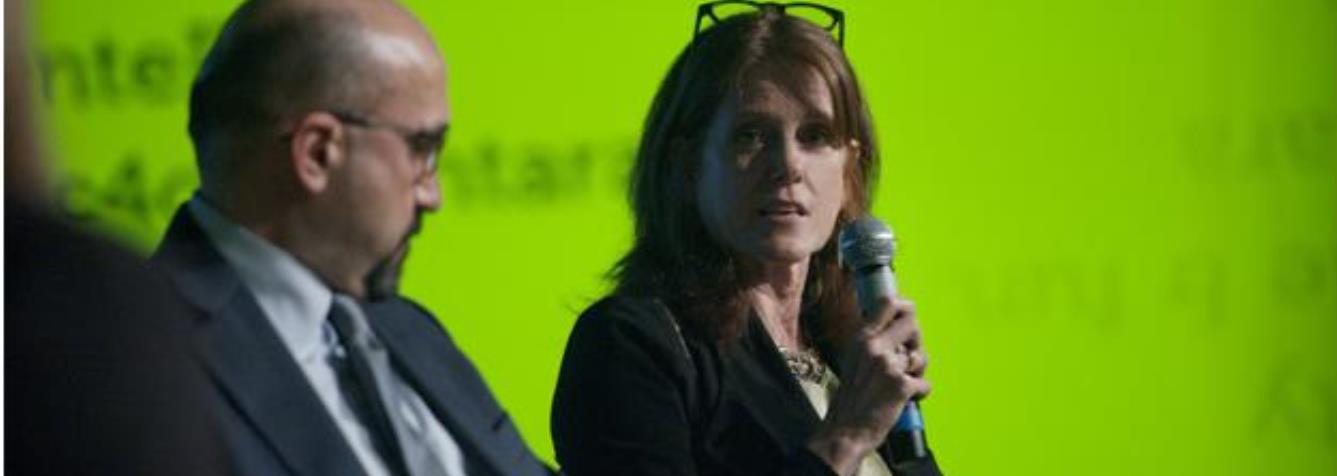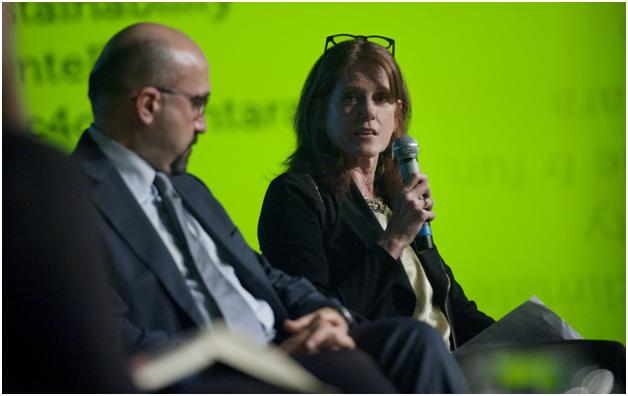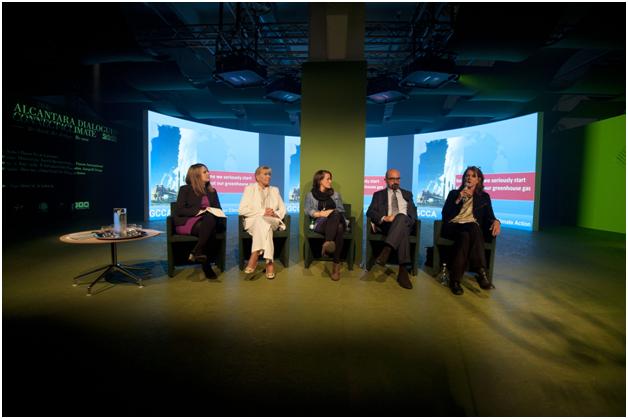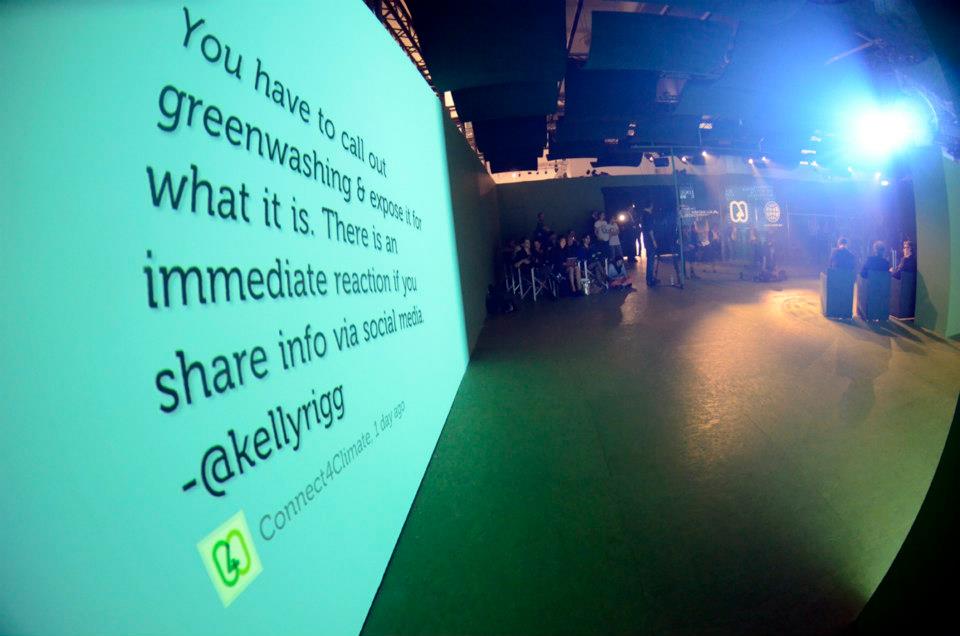
When Connect 4Climate asked me to speak at the Alcantara Dialogues during Milan Design Week, I jumped at the chance. After all, this was likely to be an audience made up of highly creative people, not the usual crowd of hard-core environmentalists and policy wonks that often participate in such discussions. Several years ago, my dear friend Dragan Klaic – a leading figure in the European theater and culture community who passed away in 2011 – gave me some very good advice. He said that the arguments of environmentalists would not be enough to generate the kind of public mandate needed to address climate change. It’s the culture community, he said – musicians, performers, artists – that will reach people at an emotional level, and help them ’feel’ what climate change is all about.

Kelly Rigg speaks at the CSR & Global Advocacy Panel Discussion for the Alcantara Dialogues: Connect4Climate--Re-think, Re-design, Re-new. Photo: Connect4Climate / Leigh Vogel.
So there I found myself, in the beautiful Alcantara exhibition space (surrounded by some of the most extraordinary exhibition spaces I’ve ever seen at a trade fair I might add). Drawing on the work of Tony Leiserowitz and his colleagues at Yale, I started with the basic, simple observation that there are really only five key things the public needs to understand about climate change: it’s happening; it’s going to be bad; humans are causing it; scientists are in agreement; and most importantly, we can do something about it. If we act urgently – there’s still hope.
Much of the discourse around climate change has focused on the first four propositions, primarily as a means of delaying action on the fifth. This is hardly surprising, because the kind of action we need to address the climate problem (phasing out fossil fuels) is a fundamental threat to some of the most powerful vested economic interests on the planet (the fossil fuel intensive industries).
But this is changing. The science of climate change is reconfirmed on an almost daily basis, as study after study examines the issue from every angle imaginable and comes to the same inescapable conclusions (propositions one, two and three above). So given all of the bad news about climate change, is it really true that there is still room for hope?
I say yes, because there’s plenty of good news too.
In 2012, for the fifth year running, more than 50% of all new capacity added to the electricity grid in the EU came from renewables. In the US, the majority of new electricity capacity in the US came from wind power. In China, wind surpassed nuclear power as the third-largest source of electricity (after coal and hydro).

Zoe Fox, Betty Williams, Julie Allen, Silvio de Girolamo, and Kelly Rigg at the CSR & Global Advocacy Panel Discussion. Photo: Connect4Climate / Leigh Vogel.
According to the latest analysis of the Pew Charitable Trusts which publishes an annual report on who is winning the clean energy race, “In less than a decade, clean energy transitioned from novelty products to the mainstream of world energy markets? The sector emerged not so much in a linear fashion as episodic—in fits and starts associated with the worldwide economic downturn, continent-wide debt crises, national policy uncertainty, and intense industry competition. Through it all, however, the clean energy sector moved inexorably forward, with overall investment in 2012 five times greater than it was in 2004.”
Perhaps the most important indicator of all is the fact that renewables are getting cheaper, while fossil fuels are getting more expensive.
I would argue that we are at the beginning of an energy revolution. The $6 million question is whether we can beat the clock.
To do so, governments need to create incentives and send the right signals, for example by taxing carbon pollution and using the revenue to support climate resilience.

A tweet wall during the Alcantara Dialogues displays statements from panelists: "You have to call out greenwashing & expose it for what it is. There is an immediate reaction if you share info via social media. -Kelly Rigg." Photo: Connect4Climate / Max Thabiso Edkins.
But business doesn’t need to wait for governments. Most companies will say that in today's economic climate, if they were to invest what’s necessary to transform operations to cleaner technologies, they would take a big hit in their quarterly reports. So major industry players must either cooperate and move simultaneously, or work to change the accounting rules which value short-term profit over long-term sustainability.
And all of us need to hold our elected leaders accountable; politicians serve at the will of the people, not of the fossil fuel industry lobbyists. But we don’t need to wait for governments either. We should be asking where our university endowments and pension funds are being invested, and push for renewables over fossil fuels. We need to put our money where our mouths are, and stop buying wasteful products.
Visit www.tcktcktck.org to find out more about how you can get involved.
Follow Kelly Rigg on Twitter: @KellyRigg



